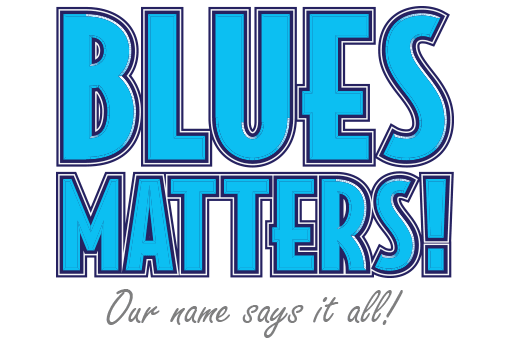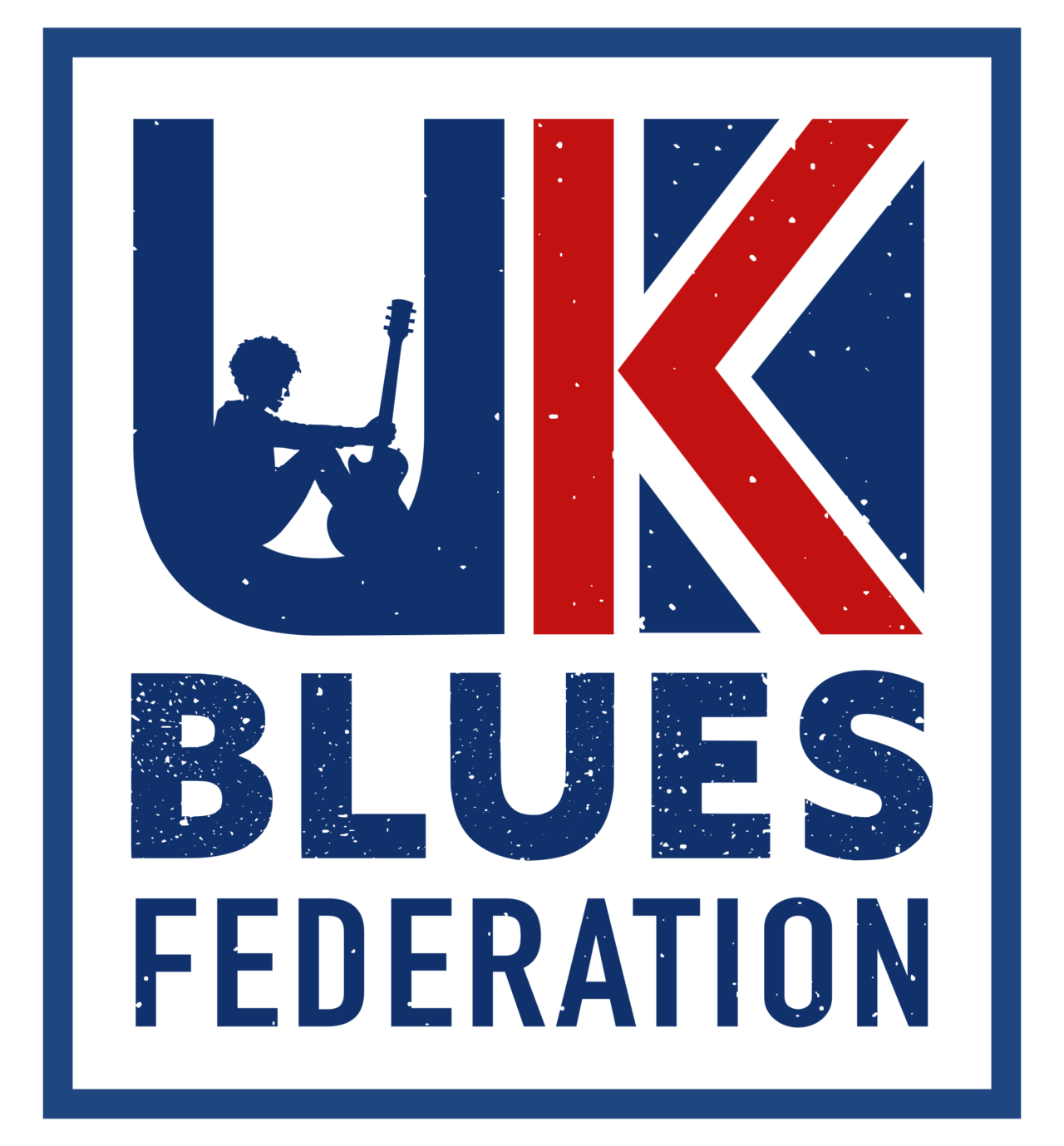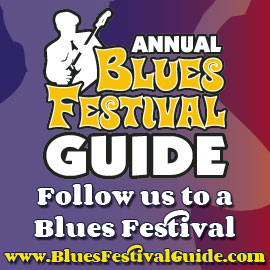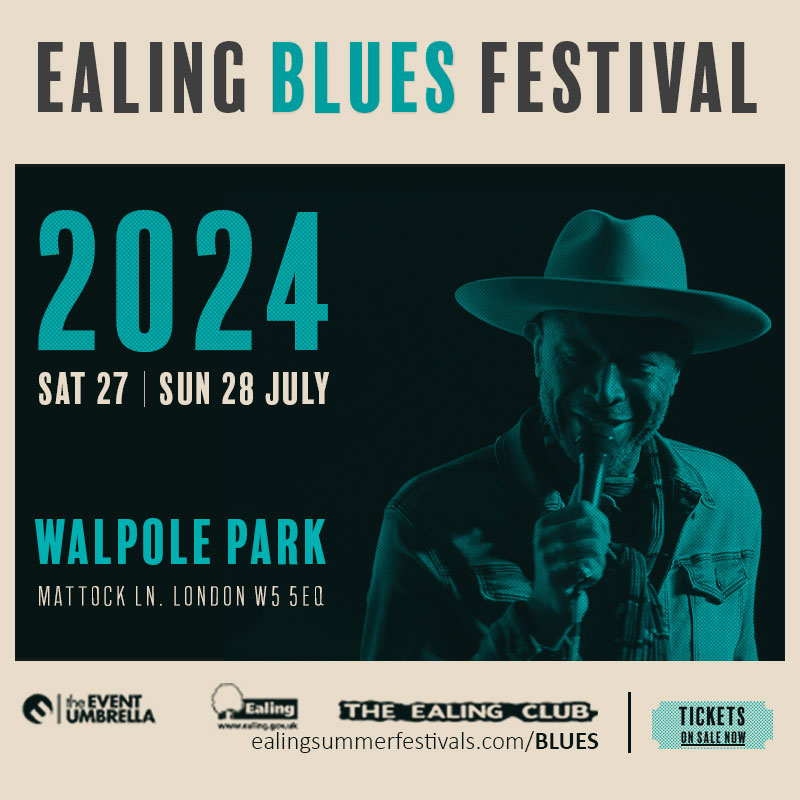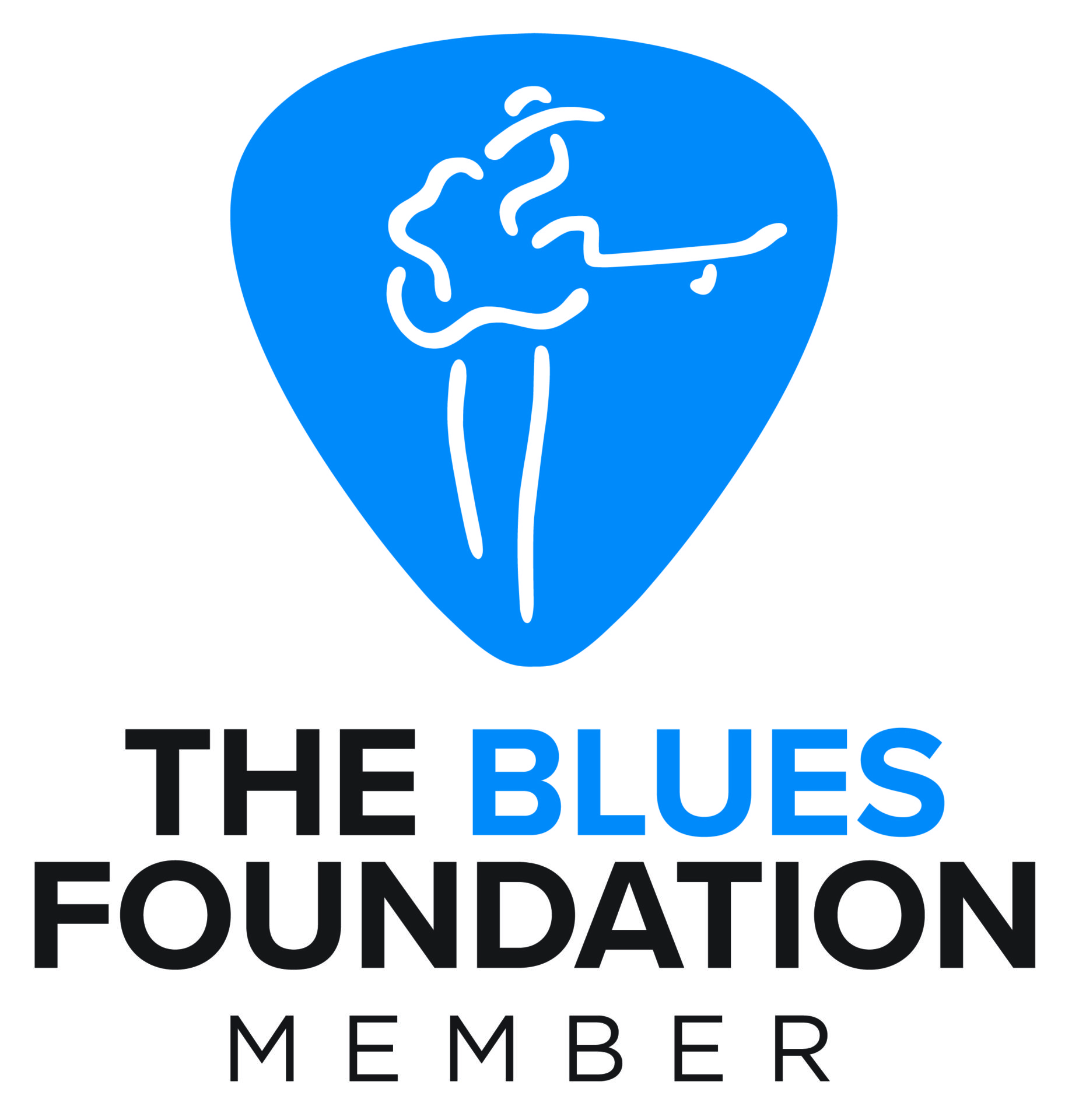C. W. Stoneking interviewed by Billy Hutchinson in 2008
AUTHENTIC VINTAGE BLUES FROM AUSTRALIA
C. W. Stoneking is a fascinating enigma; it’s almost as if he is a reincarnation of a 1930’s American bluesman, who has come back with an encyclopaedic knowledge of pre-war American/Caribbean music. He’s a young man who is doing exactly what he wants, and doesn’t care about what the critics or music press reckon a young man’s path should be. CW seems to have caught the blues public’s hunger for the real ‘old’ sound; the classic sounds of vintage American music are as popular as ever, from Bluegrass through Western Swing to vintage Blues it’s being played and sounds as fresh as ever. It shows that the Blues and other classic musical forms are always going to be around – stretched, developed, growing, but there is always back to the roots renascence in any creative format.
That’s where CW comes in with his brilliant music that draws upon pre-war sounds. In this 2008 interview Blues Matters talked to C. W. Stoneking just on the eve his departure for a tour of the USA.
BM: I’m wondering if you get asked this, but what does C.W. stand for?
CW: It stands for Chicken Wings.
BM: Is there a story behind that?
CW: Yeah, but it’s a trade secret
BM: What were your first musical steps and the significant ones since?
CW: I started playing guitar when I was 11, started playing 20s and 30s blues when I was 18.
BM: You were born in Australia to American parents, is that how you sought out American music?
CW: No, you don’t need to seek out American music; it’s the main stuff for western popular music isn’t it? But we had a big collection of music round the house; I got into the stuff I like a long time before I started to actually play it.
BM: What made C. W. Stoneking a pre-war roots revivalist?
CW: I don’t call myself that, but if someone did call me that I suppose it would be because some of my musical influence comes from pre-war blues, I never understand that term myself, seems like there was plenty of wars happened long time before blues came along. A revivalist would be playing old songs I think, I play my own music.
BM: You were a member of the Woodford Cajun-Zydeco Hot Tamale band and The Blue Tits, can you give us a briefly about your time with them?
CW: I lived out in a farmhouse and joined up with a local band for about 6 months playing the electric guitar, the Blues Tits was a band I put together for about a year and a half; we played Washboard Sam, Big Bill Broonzy, Blind Boy Fuller and stuff like that.
BM: We spoke to Mamie Minch (who played piano with C.W. and his Primitive Horns Orchestra) about you and she suggested that we ask you about your malarial delusions.
CW: Well, isn’t she cheeky then? I never got any delusions just fever and feelin’ mighty sick.
BM: How did you get malaria, is its effect decreasing, has it had an effect on your schedule or writing?
CW: I got it off mosquitoes, same as most people and had to take a lot of Chloroquine, I haven’t had a bout of it for a real long time so it might be gone forever now.
BM: I read that you were once shipwrecked off the West African coast; I’ll bet that was a life experience?
CW: I got shipwrecked when I was travelling with a group of scientists who were going to West Africa to study parasitic worms. I met them in Port of Spain (Trinidad) and it was a spur of the moment decision to go with them which turned into a nightmare.
BM: What kind of Blues or particular musicians really speak to you?
CW: I haven’t really categorised it, but I like lots of the old blues, I guess I like stuff that has the primitive sound, but with a catchy thing at the same time. I prefer the sound of music that sounds kind of tribal or ancient to something that sounds like it’s from a nightclub. Blues is one of the things I like, but also the old calypso, jazz, hillbilly singers and plenty of stuff.
BM: You seem to have had a rural background; do you think that made you more attuned with Country Blues?
CW: No, I don’t think that’s the reason why. I was surprised the first time I went through Mississippi that it looked so tamed and green and lush, I think the dry ancient landscape of Australia (especially where I spent my childhood in the desert) colored the way I listened to old-time blues and there’s a tone of that that I think comes through my own music.
BM: Has Myspace been an important tool in meeting like-minded musicians?
CW: Yes, it’s been real helpful.
BM: You have quite a few performances of yours on YouTube, has being on there helped any a big way?
CW: I couldn’t say if it has or not. I didn’t put any of them there, and I don’t know if they do anything.
BM: Fill us in on the members, and the significance of your association with the Primitive Horn Orchestra?
CW: The Primitive Horn Orchestra is my backing band, obviously the name sounds a bit grander in scale than the line-up (usually 3 others) I usually take on the road with me, that’s because I can’t afford to take around a genuine orchestra, but I plan to in the future – not a classical type orchestra though, a Primitive Horn Orchestra.
BM: How did you hook up with King Hokum Records, and how did a Swiss record company come to re-release it?
CW: King Hokum Records is my own label (distributed by Shock Records) which I use to release my records in Australia and New Zealand. Voodoo Rhythm Records is my European label run by the Reverend Beat-Man, a very nice fella.
BM: I read you have an interesting tattoo, but that its installation has caused after effects.
CW: That’s old now, and it doesn’t flare up anymore – not for a few years now.
BM: You seem to be building sizeable U.S. tours. How hard was that to initiate?
CW: It’s ok to initiate, the main thing is you gotta spend some money if you wanna put yourself around and build a profile from the ground up, it’s a good way to meet a lot of good people, and I like playing to new crowds and seeing new places. One of the best things about it is eating good BBQ, I can’t look at an Australian style BBQ no more, burned sausages and chops on a hot plate isn’t BBQ.
BM: What differences, and audience acceptance is there between when you play in Oz as opposed to the States?
CW: I think they are about the same; certainly they’re not as different as the crowds in Germany; they took me a little while to get used to. A lot of people have been real pleased to see me working in an old American style of music, and taking it all the way.
BM: You lost some valuable instruments in New York. How did that happen, did you ever get them back, and were they particularly unique?
CW: I lost my 1974 33d Dobro (not rare but I had it for about 11 years) and my old Windsor tenor banjo (had it since I was 18) forgot to take them out of the trunk of a New York yellow cab until it was too late – never got them back yet, the guitar also had a custom made Carlton Case which was a drag as well.
BM: On the record company’s website says that you were to do a tour that would include the UK. Did that come about, how did it go, and where did you play?
CW: I went to the UK last year and played some shows, it was good the crowds were real enthusiastic; they were drunk and enthusiastic.
BM: You write a great deal of your own stuff, how is the process for you?
CW: I write all my songs now for my records, the process is good when you get a song done. You don’t know what’s gonna come out so you get some good surprises.
BM: You are very honest about the failings within your early recordings.
CW: King Hokum is the first album I gave any thought to in terms of song-writing, production, and overall cohesiveness as an album. The first recordings are just recordings of me playing old-time blues numbers, recorded and mixed by other people with no input from me, I like a bit more than that from a record. I got a new record done now called Jungle Blues, it’s much wider in musical influences than King Hokum, goes across to my liking of calypso music a bit with some “jungle music” of my own invention.
BM: Have you seen Chris Cotton’s video of his song, “Blues and Sadness”, and would you like to do one on similar lines?
CW: I haven’t seen it.
BM: Are you a vintage guitar, record and/or memorabilia collector?
CW: No, I don’t collect anything, well; my music collection is on CD’s since I could never be bothered to carry around a lot of records. I bought a couple guitars last year so I look like a guitar collector a bit but I’m not – got two Nationals (a El Trovador and a Tricone), a 50s Stella 12 string guitar, a Fender Jazzmaster, and an old telecaster I had since I was 13 years old.
BM: Are you a full-time retro aficionado or is it just within the contexts of your music?
CW: I’m not an aficionado, but I have my own fads that need to be satisfied, I like to have things a particular way, and it don’t include these crappy lookin’ clothes that people are satisfied to wear these days, but by the same token, some of these retro fanatics are such a bunch of narrow minded uptight nerds that I don’t care for them much either – I like some fun in the world I wanna create.
BM: What have you got planned or desire in the near future?
CW: The Jungle Blues needs to come out here in the U.S., I will be touring, writing songs, and just keep on rolling along to make more records for people to enjoy.
www.myspace.com/cwstoneking
www.voodoorhythm.com
What we said – Blues Matters, issue 38:
C. W. Stoneking Jungle Blues King Hokum Records This CD was originally released in Australia last year and has recently been released in Europe on the Swiss label Voodoo Rhythm. The sounds contained are authentic country acoustic Blues music, as played in the deep south of USA during the ’20s and ‘30s by the likes of Blind Willie McTell and Memphis Minnie. The Australian artist, C.W. Stoneking plays, writes and sings music of the era, and also dresses the part. The sound and song structures are straight out the ’20s but lyrics are about real life events in the life of C.W. – ‘Handyman’ covers a period when C.W. did odd jobs around the Victoria area of Australia. The eleven original tracks are based on a ’20s fictional Southern US town where “dodo birds sing, hobo’s holler and handymen swing their axes in lone backyards.” The majority of tracks are played solo although there is support from the Primitive Horn Orchestra. This adds a New Orleans jazz style to a couple of tracks.
I would recommend this album to any lover of country Blues, it is both authentic and original. C. W. Stoneking will to be touring Europe during May and June, definitely worth catching if you can. The ‘20s/30s sounds here are so authentic, that there may be a question raised as to whether C.W. Stoneking is the re-incarnation of one such as Blind Willie McTell. Billy Hutchinson

